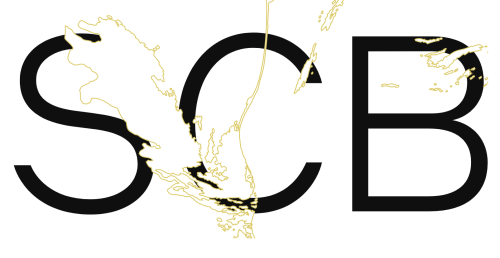Group Exhibition
17.10–30.10.2019: Screen City Biennial 2019, Stavanger, NO
With: Andrew Norman Wilson, Emilija Škarnulytė, Enrique Ramírez, Flatform, Jonathas de Andrade, Band of Weeds, Kristina Õllek, Mai Hofstad Gunnes, Marjolijn Dijkman & Toril Johannessen, Michelle-Marie Letelier, Momoko Seto, Oliver Ressler, Richard Alexandersson, Saara Ekström, Sissel M. Bergh, Tove Kommedal, Tuomas Aleksander Laitinen.
Anthropocentric theories have highlighted how human behavior is the central agent in environmental transformation. A worldview shaped by dualisms, separating concepts such as ‘nature – culture’, has created a sense of distance between humans and our environment. Our societies are geared towards expansion and innovation, bringing our shared ecosystem into a state of severe imbalance. In the Nordic context, growing environmental consciousness and attention to dark ecology in artistic discourse mirrors a global urgency to rethink human’s place in the biosphere and how we are connected to the world.
The Screen City Biennial 2019 aims to present, facilitate and examine art and artistic inquiry questioning the effect of human action on implicated ecologies. The biennial theme, Ecologies – Lost, Found and Continued, engages a post-anthropocentric worldview searching for ecologies ‘lost’ to the dominant imaginary of the modern, rationalized Western society yet blooming on the periphery. Perhaps these peripheries are deep-rooted centres of knowledge which could guide us towards a more sustainable, conscious and spiritually anchored future, if continued. In exploring these ecologies through art, the biennial asks how non-anthropocentric positions and holistic knowledge systems can provide foundations upon which we can move forward. How can these alternative systems and positions be brought into new contexts, inspire processes of innovation, and be engaged in through art?
The Screen City Biennial 2019 continues a research trajectory initiated with the 2017 edition that examined how art and stories migrate, forming new realities and modes of existence. The 2019 edition focuses on how migration of cultural ecologies, knowledge systems and ways of living could redirect cultures, environments and cities today. It explores what kinds of ecological migration are possible and could favorably be continued, to avoid ecological crisis.
The biennial presents and engages art that interferes with ecologies through which the hybrid urban context changes through time (Donna Haraway, Staying with the Trouble: Making Kin in the Chthulucene, 2016). The biennial examines the intersection of ecologies in three dimensions: spiritual (e.g. ecologies of knowledge from indigenous cultures and art philosophies that explore human connections with nature), material (e.g. ecologies of physical landscapes that are disappearing or re-materializing in relation to climate issues, of the urban fabric, or the becoming of new geographies as physical consequences of technological innovation), and virtual (e.g. ecologies of the technological layers in our everyday lives, online connectivity and hybrid natures that not only surround us visually but that we also live through). In the intersection between these ecologies, the biennial explores sustainable thinking and modes of symbiotic coexistence between nature and urban environments expressed in conceptions of space/time/nature relations of artistic philosophies and indigenous ecologies. We propose these alternatives to modern modes of thinking and rationalizing.
The 2017 biennial edition migrated the concept of the ‘screen’ from a fixed-circuit representational frame to a sensible-material, three-dimensional interface supported by digital technology. With the theme of Ecologies, the 2019 edition takes a point of departure from the ‘screen’ as an interplay of content and technology to a dynamic, potential network or ‘document’; the potential of the screen to generate contact, connectivity and culture (Andrew Murphy, The World as Clock: The Network Society and Experimental Ecologies, 2004). In engaging the screen as an ecological field for art – not necessarily rectangular but potentially mobile, environment or mapping – the Screen City Biennial 2019 anticipates an active, processual mode of art in the ecologies of the urban context of Stavanger and as connected with the world.
The biennial examines ‘ecologies’ as both a premise of locating and generating knowledge on human coexistence with the natural world, and as an approach to thinking-through-practice. Through 2019, the biennial Research Program and SCB Journal will explore the questions: What philosophical and spiritual ecologies of thinking does the art practice and engage? How does the art engage with material and technological ecologies of space? How does the art engage and affect ecologies of hybrid environments?
Screen City Biennial (SCB) in Stavanger, the first Nordic Biennial dedicated to the expanded moving image in public space, presents artworks that explore the relation between the moving image, sound, technology and public space. The architectures of the Norwegian port city Stavanger, facilitates an exhibition of the expanded moving image in three-dimensional, multi-sensual and tactile experiences, together with screening programs and gallery installations. The Biennial presents a new platform that works to explore uses of the moving image in contemporary artistic practice. SCB is founded and directed by Daniela Arriado.
